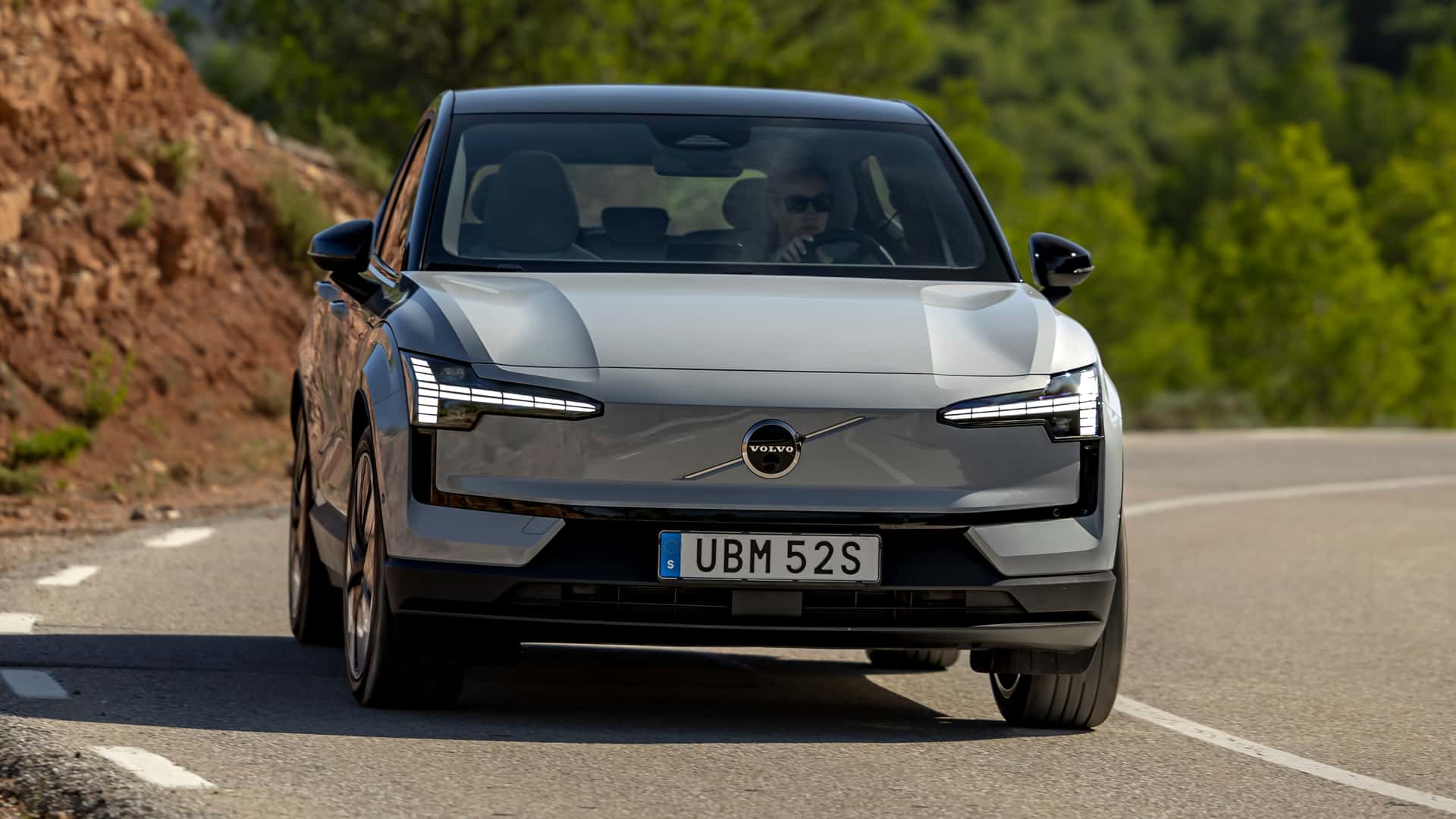Data from thousands of EVs shows the average daily driving distance is a small percentage of the EPA range of most EVs.
For years, range anxiety has been a major barrier to wider EV adoption in the U.S. It’s a common fear: imagine being in the middle of nowhere, with 5% juice remaining in your battery, and nowhere to charge. A nightmare nobody ever wants to experience, right? But a new study proves that in the real world, that’s a highly improbable scenario.
After analyzing information from 18,000 EVs across all 50 U.S. states, battery health and data start-up Recurrent found something we sort of knew but took for granted. The average distance Americans cover daily constitutes only a small percentage of what EVs are capable of covering thanks to modern-day battery and powertrain systems.
The study revealed that depending on the state, the average daily driving distance for EVs was between 20 and 45 miles, consuming only 8 to 16% of a battery’s EPA-rated range. Most EVs on sale today in the U.S. offer around 250 miles of range, and many models are capable of covering over 300 miles.



Nah, renting a car on top of whatever you’re already paying for the short range car is expensive. Hundreds of dollars for even a couple of days.
Even if you only need a car for those long trips, that’s a huge expense on top of the travel costs (hotels, food on the go, gas, etc).
I’ve had to rent a car to go up to northern states to visit my or my wife’s family a few times, and it’s crazy how expensive it is. I drive a little subcompact because I actually like small cars, but you can’t pack two adults, a kid, and all their luggage into one little hatchback.
I can kinda see someone that lives with good, cheap public transport in a city saving enough on not owning a car (insurance, licensing, etc) to make it feasible if they aren’t renting more than once or twice a year, but even that can blow the balance if it’s an extended rental.
The cost of a week in another state via the rental, just for the car was more than the car payment, insurance, and approximate maintenance costs for my car for the month. Mind you, I do have a very cheap to insure car that didn’t cost much (13k), so the balance for most people isn’t as extreme.
Plus, you can’t rent without a credit card reliably, if you want to go out of state. A credit card isn’t exactly impossible for everyone, but it’s still a limiting factor for enough people that renting anything like that is impossible.
I had some wonderful experiences about rentals in Denmark. I tried both car-sharing from Copenhagen Airport, and a traditional rental out of a very small airport on a peninsula.
The car share was awesome. I got a brand-new Mercedes CLA, 200 HP petrol engine luxury coupe. I checked if I can hop over to Sweden with it, and apparently I could. The pickup was an app, I just had to call so that my account and licence was approved for driving in Denmark. Took me longer to find my way out of the garage than the whole process. It ended up costing me around 60 EUR, but if I would have brought my own car the trip would have been nearly the same, because the car share company paid the Øresund bridge toll for me.
I then got stranded later at this tiny airport in the middle of nowhere. There was a chain rental place there (maybe SIXT?), with a big friendly guy attending it. Again, took me 15 minutes from finding the office to sitting in the driver’s seat of an Opel Mokka. And I don’t have a credit card at all, and my debit card is weird because it’s a bit different from all the others in the EU on account of it being from the NL.
I am just saying this since it sounds like a PITA to rent in the US then, it’s totally different from my experience.
That said, I do rent quite a few times, but mostly car shares for small trips, mostly between big cities. Costs me 10-50 EUR a time with fuel and the insanely expensive parking included, depending on if I go between cities or not. I would need to do a lot of that for even a small car to make sense, I would need to rent a ton. I’m looking at a new job that would need me to commute internationally (admittedly it’s only 250 km) almost daily, and it still seems like a train pass makes more sense, it’s better with time, I can sleep or work while travelling, and it’s a third of the cost of even a small car.
Again, this is not bashing, just saying how different it is between over there and over here.